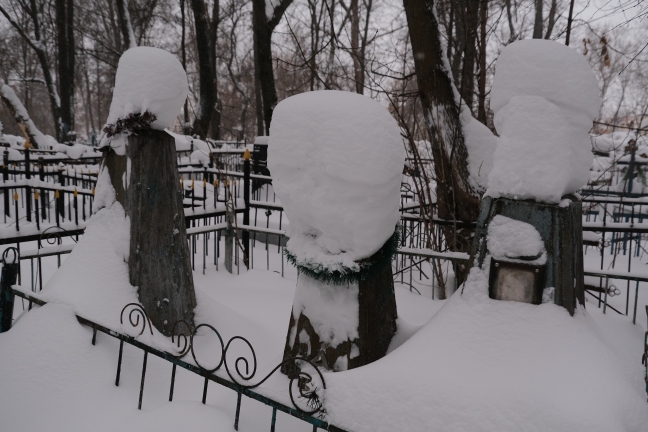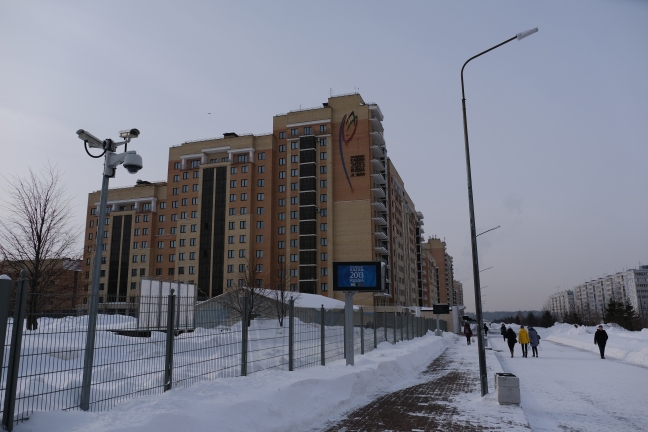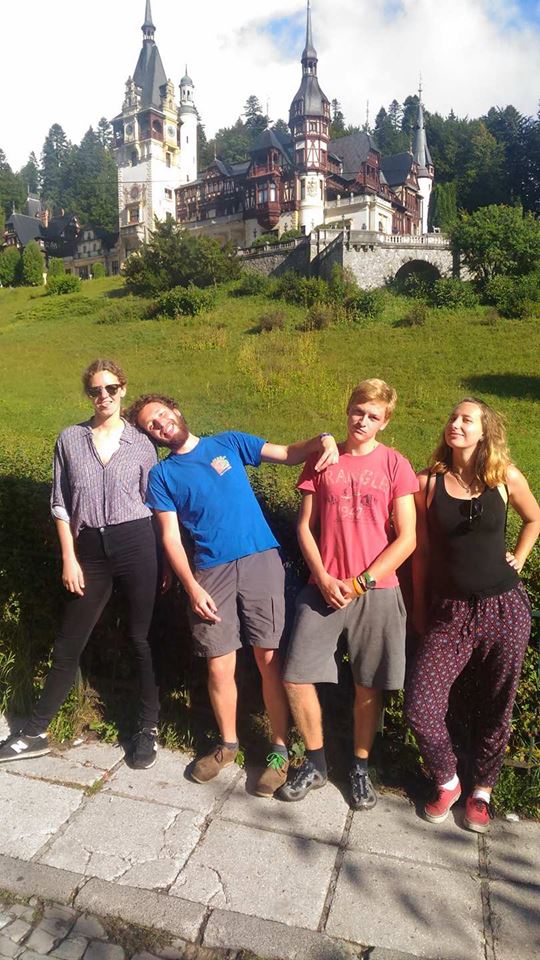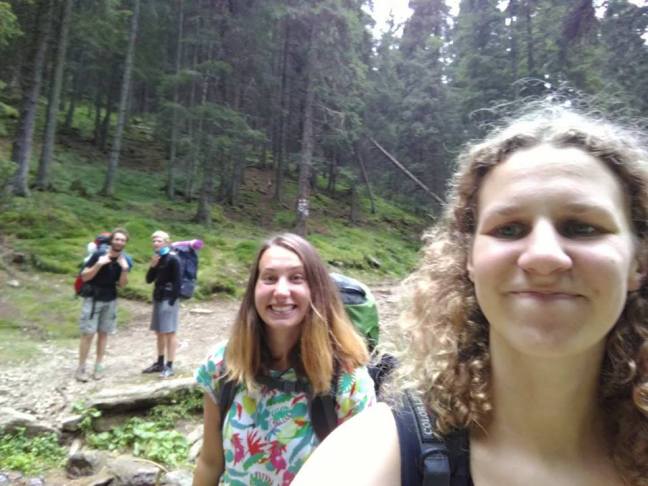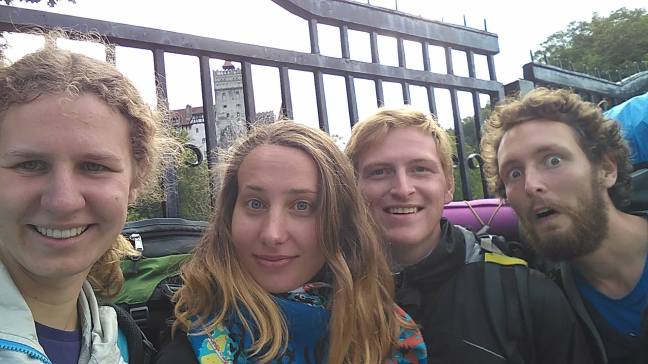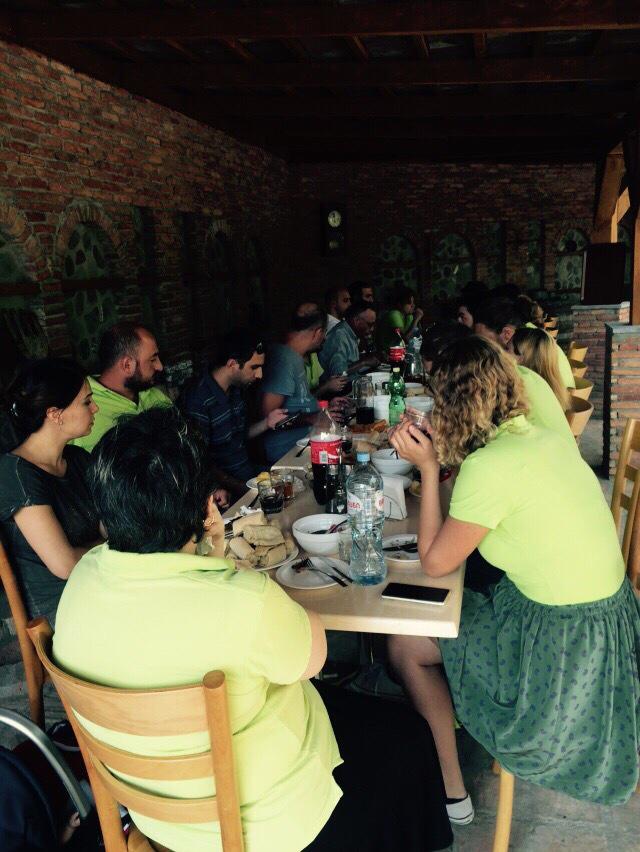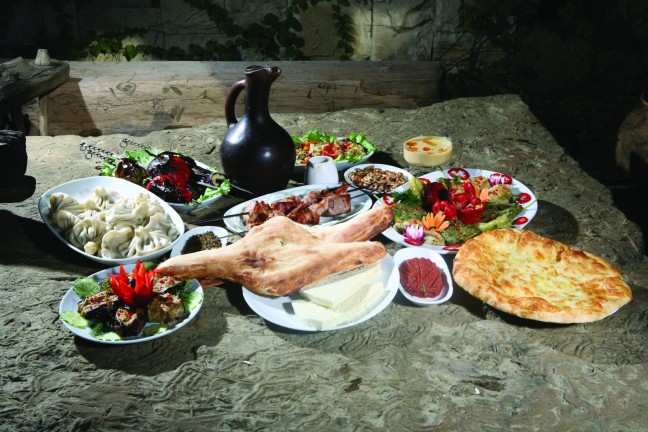The time after exams was marked with a concluding travel in the northern regions of Russia. Our wanderlust had long been waiting for the escape from university and academic responsibilities, as neither me nor Ludwig had had any break in studying for the last 8 or 9 months (not including shorter holidays like Christmas or the madness around 9th may). Despite the failure of our initial plans of renting a car and comfortably cruising through Ural mountains with the eager desire to visit outstanding Russian cities like Asbest or Nizhny Tagil, we embarked on a journey that would have us wonder at the other, brighter sides of Russia that I myself had only experienced to a minimal amount. If you are by now wondering why you have never heard head of these cities, don’t trouble your mind for it was the purest coincidence that let us to Nizhny Tagil – it was but a meme that I found on the Internet before coming to Russia.

Right after the disgraceful ending of our academic semester in Kazan, we met up with the other exchange students for a beer, then took the night train to Ekaterinburg where we had the great privilege of staying at a Russian friend’s place for our time there. Ekaterinburg… the city where we initially wanted to do our exchange; the city that surprised us as soon as we arrived; the city that had held us in awe as long as were there; a city full of pleasant surprises. In fact, the place often felt somewhat related to a Western city, as it offered a rather free choice to the inhabitant when it comes to overcoming usual social restrictions that were always sensible in Kazan.
It, furthermore, is considered the Ural capitol of Rock music. After long strolls through EKB we stumbled upon a park surrounding a pedestrian lane around a embedded rivulet. From there a small tunnel underneath a main road in the centre led to a greater basin of that same rivulet. The tunnel was insofar remarkable and astonishing as it was the so-called “Виктор Цой Туннель” (Viktor Tsoi Tunnel): all of the walls were covered in paintings and graffitis of the deceased, but still illustrious singer/song-writer that carries the nickname “the Last Soviet Hero”. In the middle of it always stands an Asian-looking singer (Asian, but not Indian… it was rather the East-Asian looking type), replaying greatest Tsoi hits, while exploiting his own appearance to earn large amounts of money.

Besides many other memorable places one building in particular struck us as unbelievable: right there, in the middle of a Russian city, stood a perfect example of an Armenian church in red bricks. A Barevzez to the priest paved the way for a guided tour through the church and over the premises. After a few explanations our surprise and disbelief vanished as effectively as Vampires when they see sunshine for the first time; the amount of Armenians living on Russian ground is significantly higher than the population of the originating country itself. After providing us with knowledge he recommended us to visit an Armenian restaurant in town – after the painful acclimatisation that was the almost tasteless and meat-heavy Russian kitchen, every bite of indubitably authentic Armenian cuisine made my taste buds shiver from excitement.
Before you continue, you should look up some pictures of Nizhny Tagil (Нижний Тагил) and let the view have a first impression on you. This is what we did. And everyone with whom we talk to about our idea of seeing this lovely Soviet industrial horror was in turn looking at us with a face of a Teletubby. And, indeed, arriving in the city and seeing it with our own eyes confirmed all of our wildest imaginations. That is: Thick clouds of smokes escaping the many factories intestines, all indicating a different intensity of danger to the health; Soviet buildings all over the place; stray dogs roaming the roads; and drunk men squatting in the parks.
All in all a promising start!
Not even ten minutes after our arrival, a few drunkards saw us two strangers walking around with photo material and immediately insisted on posing for a portrait of them, that we immediately printed out for them (one exemplary I used as a postcard and it should already circulate somewhere in Europe).

Sitting in a Vienna-styled café and Pirogi restaurant, we checked the Internet for places to stay and eventually decided to book an Airbnb for little money close to the central city. However, there appeared to have been a misunderstanding between the unfortunate owner of the apartment and a money-grubbing office behind, that were not even aware, that the place was for rent online (one phone call had already cleared our path, whereas the following one undermined the slightest possibility of the existence of that same place). As the payment had already been completed, we insisted on moving into the flat for the time our stay, and eventually ended up sitting in the office with the employees waiting for their unpleasant boss to show up. About four hours, a couple of teas and the additional payment of another 1000roubles caused the temporary evacuation of the mistreated owner and her two children. Right after sundown he headed out again to further explore the city, despite the unlucky star it seamed to stand under. While moving around aimlessly, Ludwig and I stopped in a wonderful backyard to take in all of the architectural details and the invigorating harmony of buildings and nature. A car stopped. The driver and his wife noticed me and Ludwig taking pictures. A few words were exchanged. More inhabitants appeared out of thin air and joined us. And before long we found ourselves in a car on its way to a bar that is being provided with local beer – beer brewed by a Mexican guy who studied the magic of brewery in Berlin! A beer that was truly excellent in taste and design of the bottles. I can only heartily recommend any friend of the hop brew to pilgrimage to Nizhny Tagil and support the local brewing art!
The initial idea of our trip to Nizhny Tagil was, however, a completely different one: we wanted pictures, pictures of industry! Of the raw, polluting power of the purest of all Russian factories. In fact, we wanted to capture the whole scale of monstrosities that is the patriotic Russian tank industry (Tagil is fond over its tanks. The local souvenir industry is making a large split between showing the beauty of Tagil and, on the other hand, showing the full potential of its factory output).
Little did we know that on the next day the city was engulfed with genuine patriotic sentiments over a marine battle that was won by Imperial Russia over a 100 years ago. As the only logical result, by midday all the men in the city had already consumed a dangerous amount of alcoholic beverages and strayed around the city, waving flags of the Флот (fleet). This, of course, meant some beautiful motives for Ludwig. After turning down a few invitations to vodka we made our ascend to Лисья Гора [Lisya Gora] from where me made some incredible shots of the dimly lighted, terrifyingly polluting factories that would make every climate activist go on a rampage.
After shivering for easily 3 hours in the cold wind that had been continuously harassing our position, we decided to pack our stuff and leave, though without being perfectly satisfied. As the night started descending upon us, the flame ceased a little, and the steam escaping the factory on a regular basis served as the main motive. The minute our stuff was packed away, the flame rose up to an height, yet unknown to us while another white cloud was spit out of the deepest intestines of the urban nightmare. The mixture created the effect of what looked like an enormous explosion over the factories.
Unfortunately, we didn’t manage to capture it. It was stunning. Simply breathtaking. The hours of exhausting waiting for the perfect moment would have been absolutely worth it, but our patience had left us five minutes too early.
On the following days, we said goodbye to EKB by drinking beers and hearing about locals expressing their concerns towards either immigration to Europe or homosexuals in general… big country, same absurd fear everywhere. They, however, provided us with an unexpected gift that had us rejoicing for many hours and carried us through the city on eagle’s wings. The reputation of the city, i.e. rock capitol of the Ural, loudly resounded through the evening streets. With the coda harmoniously ebbing away, we split from our friends in EKB and prepared for the trip back the next day.
At the train station, an unexpected sight caught our sight. A souvenir that is a fine addition to my collection of small presents from Russia.
For more pictures, access Ludwig Schubert Photo’s Instagram Profile: https://500px.com/ludwig94
or: https://500px.com/ludwig94











